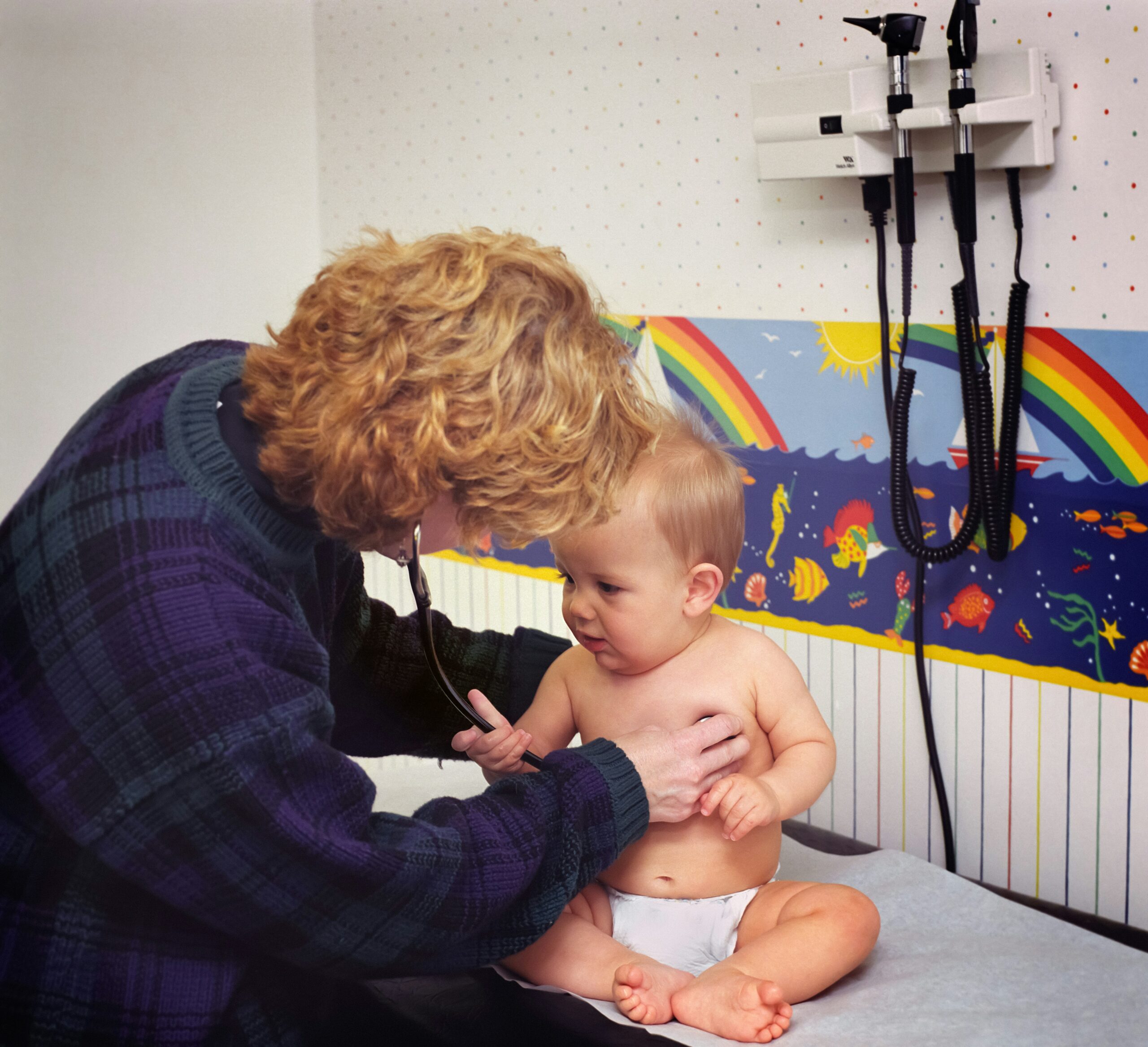A sudden fever in the night, a persistent cough echoing through a quiet room, a toddler refusing breakfast again—each of these moments can send a ripple of concern down a parent’s spine. Is this a fleeting discomfort, or the first sign of something more serious? Should a pediatrician be consulted at once, or is it safe to wait? When uncertainty clouds your judgment, the expertise and steady presence of a pediatrician can feel like a lighthouse in turbulent waters. Parents often seek answers, clarity, and confidence, especially in those perplexing moments when their child’s behavior or health seems to shift without warning. Let’s unravel the role of the pediatrician, explore their unique skills, and discover how they support your child’s journey to robust health, while addressing practical concerns that busy, caring parents encounter every day.
Pediatrician: A Specialist in Childhood Health
Who Is the Pediatrician? Scope and Skills
A pediatrician is far more than a doctor for “little adults.” These specialists devote their entire medical practice to understanding the developing body and mind, monitoring milestones such as growth, developmental screening, social and emotional health, and emerging behavioral patterns. Pediatricians combine rigorous scientific knowledge with an ability to decipher subtle signals that infants and children present, whether through an offhand cry, an irregular rash, or a change in appetite. They routinely assess growth charts, oversee immunization schedules, and offer informed advice about sleep, nutrition, and emotional well-being—explaining, adjusting, and personalizing care at each visit.
Preventive care sits at the heart of their mission: vaccines are not merely delivered, but discussed; feeding habits are not simply prescribed, but tailored. The pediatrician’s ability to anticipate childhood illnesses and track early warning signs can prompt timely intervention long before serious complications arise.
Why Choose a Pediatrician for Your Child?
What makes the pediatrician indispensable? Quite simply, their medical training is focused solely on infants, children, and young adults—allowing for a deep, up-to-date understanding of pediatric illnesses, vaccines, genetics, and growth trends. Their consultations go beyond the sum of vaccinations and prescriptions; pediatricians develop an ongoing partnership with families, cultivating trust through dialogue and education. When faced with symptoms such as a persistently high fever, recurrent infections, or behavioral delays, a pediatrician possesses advanced diagnostic and therapeutic skills that reflect extra years of specialization in fields like pediatric neurology, endocrinology, or adolescent medicine.
Pediatrician vs. Family Physician: An Informed Choice
Although family doctors are often well-equipped to treat minor, everyday illnesses, the pediatrician distinguishes themselves through detailed training on pediatric physiology, child development, and rare childhood disorders. They employ specialized tools and screening protocols—think neonatal screening, early detection of neurodevelopmental disorders, advanced management of asthma or diabetes—that often fall outside the primary care repertoire. The collaborative relationship between pediatrician and family doctor ultimately benefits the child: each brings unique perspectives, ensuring continuity and depth in health care.
The Pediatrician’s Method: Prevention, Support, and Partnership
Beyond Diagnosis: The Art and Science of Pediatric Care
A pediatrician’s expertise lies not only in interpreting laboratory results, but also in fostering an environment where parents’ concerns are welcomed and explored. Through family-centered care, they weigh environmental, genetic, and psychosocial factors during every assessment. Have you ever worried about frequent tantrums, picky eating, or sleep disruptions? Pediatricians are trained to address these everyday mysteries, drawing from current research while encouraging parental autonomy and individualized solutions. Engaged listening, clear communication, and empathy transform each clinical encounter—whether in a bustling clinic or over a reassuring telemedicine call.
Ongoing Support and Preventive Medicine
Beyond acute infections or injuries, the pediatrician serves as a guardian of your child’s well-being. They structure follow-ups around age-specific needs—monthly in infancy, periodically throughout early childhood, and annually as adolescence approaches. During these visits, practical advice flows freely: how to interpret a child’s sleep cycles, when to introduce solids, how much screen time is reasonable, or what to expect after a vaccine. Preventive health care—regular assessments of hearing and vision, timely vaccinations, and monitoring growth trajectories—empowers parents to make informed choices with confidence.
Education, Specialization, and Pediatric Medical Training
The Path to Becoming a Pediatrician
The journey to becoming a pediatrician is demanding and highly structured. After medical school, aspiring pediatricians enter specialized residency training, immersing themselves in areas such as infectious diseases, intensive care for newborns (neonatology), and complex chronic disorders. Fellowship programs can extend this expertise, producing pediatricians with sub-specialties—think child psychiatry, pediatric cardiology, or pediatric gastroenterology—who manage particularly challenging or rare cases. Whether working in outpatient wellness clinics or hospital wards, every pediatrician brings a foundation of evidence-based practice, patient safety, and up-to-date protocols to their clinical work.
Pediatric Subspecialties and Research
Many pediatricians pursue advanced interests, contributing to ongoing medical research, drafting new guidelines, or tackling public health challenges such as vaccine hesitancy and health equity. Pediatric endocrinologists address diabetes and growth disorders; adolescent medicine experts help teenagers navigate puberty, mental health, and complex care transitions. These multidisciplinary teams often collaborate seamlessly to optimize your child’s health throughout the formative years.
Where Pediatricians Practice: Accessibility and Innovation
Service Settings: From Clinic to Community
Pediatricians operate in a range of healthcare settings. Private clinics form the backbone of routine care, handling well-child visits and everyday concerns. Hospitals provide specialized support for acute illnesses or surgical needs, including neonatal intensive care units for premature or high-risk infants. Community health centers extend accessible, sometimes free, pediatric care to families who may face barriers—rural distance, financial constraints, or limited transportation. This network ensures consistent follow-up, flexible scheduling, and a safety net for families from diverse backgrounds.
Advances in Telemedicine and Digital Care
The emergence of telehealth has dramatically reshaped pediatric practice. Now, consultations for minor illnesses, behavioral check-ins, and chronic care management can often be handled securely and conveniently at home, minimizing exposure to infectious diseases and cutting down on travel time. Still, a hands-on physical examination remains essential, especially for infants or any child displaying concerning symptoms.
Pediatrician’s Responsibilities: Comprehensive, Individualized Care
Growth Monitoring, Developmental Assessment, and Preventive Screenings
A cornerstone of the pediatrician’s work is regular, precise monitoring of physical and developmental progress. Head circumference, body mass index, reflexes, language milestones—each is evaluated according to standardized tools and interpreted within the context of the child’s background and family history. Audiometry (hearing tests), ocular screenings, and neurodevelopmental assessment are offered at key ages, catching issues while intervention is most effective.
Practical Family Guidance: Nutrition, Hygiene, Sleep
From breastfeeding tips to guidance on introducing allergens, the pediatrician brings clarity to conflicting advice and online trends. Are you confused about bottle feeding? Curious about safe co-sleeping? Unsure when to start dental hygiene? Pediatricians blend scientific recommendations with practical advice and reassurance, always respecting personal circumstances and preferences.
Vaccination and Public Health
Staying current with the recommended child vaccination schedule is central to a pediatrician’s preventive mission. Each vaccine is explained—benefits, risks, and the rationale behind timing—thus demystifying a subject fraught with conflicting opinions online. Transparent counsel helps parents make confident choices and supports community-wide immunity.
Acute and Chronic Disease Management
Whether it’s a simple cold, suspected asthma, or juvenile diabetes, pediatricians orchestrate diagnosis, treatment, and referral to appropriate specialists if needed. Chronic conditions prompt detailed care plans, sometimes involving nutritionists, speech therapists, or occupational therapy. Emergencies—convulsions, sudden breathing difficulties, head trauma—are managed with rapid response and medical rigor.
Emotional Well-being and Mental Health
The psychological side of pediatric medicine cannot be overstated. Pediatricians frequently identify early signs of anxiety, learning disabilities, or mood disorders, making sensitive referrals to psychologists or child psychiatrists. The focus: timely assessment, supportive follow-through, and coordinated care spanning both physical and emotional well-being.
Communication and Collaborative Support
From explaining test results to updating the health record at every visit, pediatricians are skilled communicators. Regular, clear discussions foster mutual understanding and adherence to treatment plans. The health record—a carefully maintained booklet or digital file—serves as a lifeline, tracking vaccines, illnesses, allergies, and interventions throughout childhood.
When and How to Consult Your Pediatrician
Routine Visits and the Consultative Timeline
After the first maternity ward exam, infants are typically seen monthly until six months, quarterly through toddlerhood, then annually for ongoing wellness checks. This adaptable schedule can intensify in the presence of medical concerns, developmental red flags, or parent queries.
When Should a Pediatrician Be Contacted?
A high fever that lasts more than three days, sudden rashes, loss of appetite, persistent vomiting, or delays in walking or speech—these are all prompts for a pediatrician’s assessment. No concern is insignificant. Timely advice prevents escalation and fosters peace of mind.
Pediatrician or Family Doctor? Tailoring Care
For minor illnesses—simple colds, mild fevers—a family doctor may suffice. Yet, for anything persistent, unusual, or involving growth or developmental worries, the pediatrician’s refined expertise is invaluable. Family physicians and pediatricians frequently share medical records and collaborate smoothly to streamline your child’s care.
Finding the Right Pediatrician
What should parents weigh? Availability, listening skills, clarity in explanations, and convenient location are all important. Some prioritize telemedicine, while others value regular in-person visits. Trust forms the bedrock of the parent-pediatrician-child relationship; choose a pediatrician whose approach aligns with your family’s values and logistical needs.
Access, Cost, and the Modern Pediatric Network
Understanding Fees and Coverage
Most pediatrician visits—especially preventive checkups and recommended screenings—are regulated for affordability and often reimbursed via public insurance or supplemental plans. In underserved communities, free or low-cost public health clinics ensure no child is left behind, providing vaccinations, development checks, and chronic disease monitoring without significant out-of-pocket costs.
Streamlined Access and Teleconsultation
Direct access to pediatricians remains the standard in many healthcare systems, allowing children to receive specialized evaluation without lengthy referral processes. Telemedicine, when available and appropriate, is reimbursed just like in-person consultations, so long as standards and privacy safeguards are met.
Supporting Every Family: Community Clinics
Community-based primary pediatric care plays a vital role, offering routine exams, vaccinations, and educational sessions—especially for families confronting social, economic, or geographic challenges.
Building Trust and Promoting Family Confidence
Trust-Building Through Openness and Respect
A pediatrician welcomes all questions, dispels myths with data, and provides reassurance during anxious moments. An open-door attitude, free from judgment or impatience, encourages parents to speak up about subtle observations or worries not always visible during a routine check.
Multidisciplinary Collaboration for Holistic Care
Pediatricians do not work in silos. They engage with a spectrum of professionals—nutritionists, psychomotor therapists, surgeons, social workers—to ensure each child receives a genuinely comprehensive approach. Integrated care cuts down on unnecessary repeat testing and lost information, benefiting patients and stretched parents alike.
Pediatric Specialties and the Future of Child Health
Advanced Pediatric Subspecialties
Pediatric practice is richly varied, including branches such as neonatology, pulmonology, nephrology, and hematology. Each brings deep, nuanced care for rare, chronic, or complex disorders, often requiring ongoing dialogue and shared management between several disciplines.
Emerging Needs: Mental Health and Therapy
Rising rates of anxiety, attention issues, or neurodevelopmental disorders mean pediatricians are spending more time coordinating with mental health specialists than ever before. Sensitive referral, regular tracking, and whole-family support are all integral to this modern approach.
Embracing Innovation While Preserving the Human Touch
Digital monitoring tools, online educational resources, and remote consultation platforms extend the pediatrician’s reach but never replace physical exams or relationship-building. Today’s pediatrician navigates both worlds, offering personalized plans that blend new technology with clinical wisdom.
Rising to New Challenges
Growing demand, fluctuating workforce numbers, and increasingly complex childhood illnesses—childhood obesity, allergies, attention disorders—are reshaping the field. Pediatricians respond through continuous training, advocacy for public health, and tireless research. The ultimate goal: health, confidence, and a sense of safety for every family.
Key Takeaways
- Pediatricians provide specialized, continuous support from birth through young adulthood, combining deep medical training with a keen understanding of development, nutrition, prevention, and emotional health.
- Their scope extends well beyond treating illness: growth monitoring, screenings, personalized advice, and family-centered partnership are at the heart of their role.
- Advanced education and innovative resources—both in-person and digital—mean pediatricians are equipped to address contemporary challenges, including chronic conditions and mental health needs.
- Open communication, transparency, and coordinated care with other health professionals ensure families always have a trusted partner on their side.
- Practical, affordable access to preventive visits and treatments remains a cornerstone, regardless of background or circumstance, through both private clinics and community resources.
- For advice uniquely tailored to your child—whether about sleep, development, or health worries—direct, trustworthy support is always available from a pediatrician.
- Parents seeking further reassurance or guidance can also download the Heloa app for free personalized pediatric advice and health questionnaires.
Questions Parents Ask
What is the best age to start seeing a pediatrician?
It is recommended to connect with a pediatrician even before your baby is born, often during the last months of pregnancy. Early contact allows you to discuss newborn care, feeding tips, and immunization schedules. From birth onward, pediatricians monitor your child’s growth and development through regular check-ups. There isn’t a specific age to begin—they are there from the start and can follow your child into adolescence, adapting their care to each developmental stage.
How can I choose the right pediatrician for my family?
Choosing a pediatrician is a personal decision, shaped by your values, needs, and family situation. Many parents appreciate professionals who communicate clearly, take time to listen, and show empathy for everyday concerns. You might consider factors such as proximity to your home, consultation hours, openness to alternative practices, or the availability of telemedicine. Above all, trusting your instincts when meeting a pediatrician is important. If you feel comfortable sharing your questions and worries, you’re likely in the right place.
What’s the difference between a pediatrician and a general practitioner?
While both pediatricians and general practitioners care for children, pediatricians dedicate their training exclusively to the health and development of infants, children, and adolescents. They focus on age-specific medical issues, growth monitoring, and preventive guidance tailored to every stage of childhood. General practitioners, on the other hand, have broader training across all age groups. For personalized and developmentally appropriate care—from newborn to young adult—a pediatrician brings specialized expertise and an understanding of evolving childhood needs.

Further reading:









